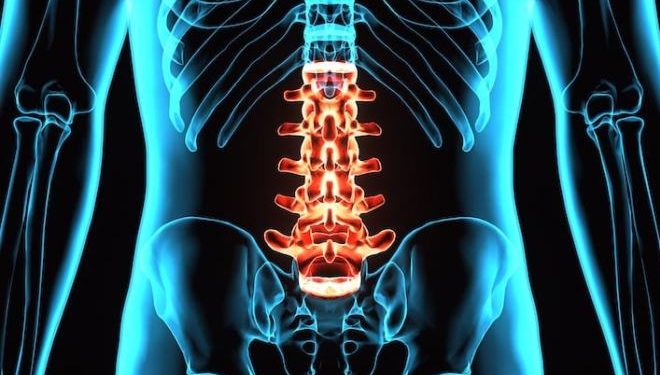Welcome to our blog post on the Road to Recovery: Rehabilitation Strategies for Acute Spinal Cord Injury (ASCI) Patients! Suppose you or a loved one has recently experienced an ASCI. In that case, this article is here to provide valuable information and guidance on the importance of Rehabilitation in your journey toward recovery. We understand that this can be challenging, but with the right strategies and support, you can regain independence and optimize your quality of life. So, let’s dive in and explore the various rehabilitation programs available, physical therapy techniques, occupational therapy strategies, and psychological support that can make all the difference on your road to recovery from an acute spinal cord injury. Let’s get started!
Understanding Acute Spinal Cord Injury (ASCI)
Regarding acute spinal cord injury (ASCI), knowledge is power. So, let’s start by gaining a deeper understanding of what ASCI entails.
ASCI occurs when there is sudden damage to the spinal cord, resulting in temporary or permanent changes in its function. This type of injury can be caused by various factors such as accidents, falls, sports injuries, or even medical conditions like tumors or infections.
The severity of ASCI can vary greatly depending on the location and extent of the damage. In some cases, individuals may experience complete loss of movement and sensation below the level of injury, while others may still retain some degree of mobility and feeling.
It’s important to note that ASCI affects physical abilities and can impact other bodily functions such as bladder control, bowel movements, sexual function, and even respiratory functions.
Each person’s journey with ASCI is unique, so working closely with healthcare professionals specializing in spinal cord injuries is crucial for an accurate diagnosis and personalized treatment plan. By understanding the specific nature of your injury and its potential implications, you’ll be better equipped to successfully navigate the road to recovery.
Remember that this journey requires time and patience – progress may come at a different pace for each individual. With proper education about your condition and access to tailored rehabilitation strategies, you can regain independence and improve your overall well-being after an acute spinal cord injury.
The Importance of Rehabilitation for ASCI Patients
Rehabilitation plays a crucial role in the recovery journey of individuals with Acute Spinal Cord Injury (ASCI). It offers hope, support, and specialized strategies to help patients regain independence and improve their quality of life.
One of the primary goals of Rehabilitation is to maximize physical function. Through targeted exercises and therapies, ASCI patients can strengthen their muscles, improve coordination, and relearn essential skills like walking or using assistive devices. Physical therapists are vital in creating personalized exercise programs that address each patient’s unique needs.
In addition to physical therapy, occupational therapy also plays a significant role in the rehabilitation process for ASCI patients. Occupational therapists focus on helping individuals enhance their ability to perform daily activities such as dressing, bathing, cooking, and even returning to work or school. They provide adaptive techniques and recommend assistive devices tailored to each patient’s functional goals.
Psychological support is equally essential during Rehabilitation for ASCI patients and their families. The emotional impact of this type of injury can be overwhelming, leading to anxiety, depression, or feelings of isolation. Therefore, mental health professionals are an integral part of the multidisciplinary team providing counseling services to help patients and their families cope with these challenges.
Overall, Rehabilitation serves as a lifeline for individuals with acute spinal cord injuries by offering comprehensive care that addresses physical limitations and psychological well-being. Access to various rehabilitation programs explicitly designed for ASCI patients’ needs allows them to rebuild their lives, regain independence, and embrace new possibilities. Through hard work and determination, the road to recovery may be challenging, but with proper guidance and unwavering support from healthcare professionals specializing in spinal cord injury rehab.
Types of Rehabilitation Programs for ASCI Patients
Regarding acute spinal cord injury (ASCI), Rehabilitation is crucial in helping patients regain function and improve their quality of life. Various types of rehabilitation programs are available, tailored to meet each individual’s specific needs and goals.
One common type is inpatient rehabilitation, where patients receive intensive therapy at a specialized facility. This allows round-the-clock care and monitoring by a team of healthcare professionals specializing in ASCI treatment.
Outpatient rehabilitation is another option, which involves regular visits to a clinic or hospital for therapy sessions. This can be more flexible for those who have already made progress but still require ongoing support and guidance.
Home-based rehabilitation programs provide convenience and comfort by bringing therapy directly to the patient’s home. It involves working closely with therapists who develop personalized plans that can be implemented within the familiar surroundings of one’s residence.
Day programs offer structured therapy sessions during the day, allowing individuals to return home at night. This provides an opportunity for social interaction with other ASCI patients, promoting peer support along the road to recovery.
It’s important to note that every individual’s journey toward recovery will be unique, so finding the right program that fits their specific needs is essential. By considering factors such as severity of injury, mobility limitations, and personal goals, healthcare professionals can recommend an appropriate rehabilitation plan tailored specifically for each patient.
Remember that patience and perseverance are key throughout this process. Rehabilitation after an acute spinal cord injury requires time and dedication from the patient and their support system. With proper guidance from skilled therapists and unwavering patient determination, incredible progress can be achieved on this road to recovery!
Physical Therapy Techniques for ASCI Patients
Physical therapy is crucial in the rehabilitation journey of individuals with acute spinal cord injury (ASCI). This therapy focuses on improving mobility, strength, and overall physical function. Let’s explore some techniques physical therapists use to help ASCI patients regain their independence and quality of life.
One common approach is a range of motion exercises. These exercises involve moving and stretching the joints to maintain or increase flexibility. Range of motion exercises can prevent muscle stiffness and improve joint mobility in ASCI patients.
Another technique utilized by physical therapists is therapeutic exercise. This involves specific activities that target muscle strengthening and endurance. By incorporating resistance training, balance exercises, and functional movements into their sessions, physical therapists can help ASCI patients rebuild strength in affected muscles.
In addition to these techniques, there are also specialized therapies, such as aquatic therapy or locomotor training, that may be beneficial for ASCI patients. Aquatic therapy uses water’s buoyancy to reduce weight-bearing stress on joints while allowing for greater freedom of movement. Locomotor training utilizes body-weight-supported treadmills or robotic devices to simulate walking motions, helping retrain neural pathways involved in walking.
It’s important to note that each individual’s needs are unique, so physical therapists tailor treatment plans accordingly. They work closely with ASCI patients to set realistic goals and monitor progress throughout the rehabilitation process.
By combining these techniques and individualized care plans, physical therapists can make significant strides in enhancing the lives of those living with acute spinal cord injuries. Their expertise helps facilitate recovery while empowering ASCI patients to reach their full potential!
Occupational Therapy Strategies for ASCI Patients
Occupational therapy plays a crucial role in the rehabilitation journey of acute spinal cord injury (ASCI) patients. This specialized therapy focuses on helping individuals regain independence and maximize their ability to engage in daily activities.
One crucial strategy used in occupational therapy for ASCI patients is assistive technology. This involves using devices or equipment that can aid individuals with limited mobility in performing tasks like dressing, feeding, or using a computer. From wheelchair modifications to voice-activated technology, these innovative solutions empower ASCI patients to lead more independent lives.
Another critical aspect of occupational therapy is home modification. Therapists work closely with ASCI patients and their families to assess their living environment and make necessary adaptations to ensure accessibility and safety. This may include installing handrails, ramps, or lift systems that enable more effortless movement throughout the home.
Additionally, occupational therapists provide education and training on energy conservation techniques. By teaching ASCI patients how to conserve energy during daily activities through proper body mechanics and pacing strategies, they can optimize functional abilities while minimizing fatigue.
Furthermore, vocational Rehabilitation is an essential part of occupational therapy for ASCI patients who wish to return to work or pursue new career opportunities. Occupational therapists assist individuals by evaluating their skills, providing job-specific training, and recommending accommodations that facilitate successful employment.
Psychological Support for ASCI Patients and their Families
In addition to the physical challenges acute spinal cord injury (ASCI) patients face, there is also a significant impact on their mental and emotional well-being. Coping with the sudden changes in mobility, independence, and daily life can be overwhelming. That’s why psychological support is crucial in the rehabilitation journey for ASCI patients and their families.
One of the critical aspects of psychological support is counseling or therapy. Mental health professionals who specialize in working with individuals with spinal cord injuries can provide valuable guidance and assistance. They help patients navigate through their emotions, such as grief, anger, frustration, or anxiety that may arise from their condition.
Support groups are another vital resource for ASCI patients and their families. Connecting with others who have experienced similar challenges offers a sense of belonging and understanding. Sharing experiences, exchanging advice, and receiving encouragement can significantly affect one’s recovery process.
Family involvement is essential during this difficult time as well. Loved ones often experience feelings of guilt or helplessness when someone close to them suffers an ASCI. Providing appropriate education about SCI-related topics helps them better understand what the patient is going through physically and emotionally.
It’s important to acknowledge that every individual responds differently to an acute spinal cord injury; hence, tailored approaches are necessary for psychological support strategies. The aim is to address immediate concerns and equip patients with coping mechanisms for long-term adjustment.
Rehabilitation centers typically offer comprehensive programs incorporating various modalities like psychotherapy sessions, family counseling sessions, support group meetings, and physical therapy techniques mentioned earlier.
The road to recovery after an acute spinal cord injury may be challenging but not impossible! With proper medical care, rehabilitative strategies encompassing physical therapy techniques, occupational therapy strategies, and a robust psychological support system, ASCI patients can regain independence and improve their quality of life.






























